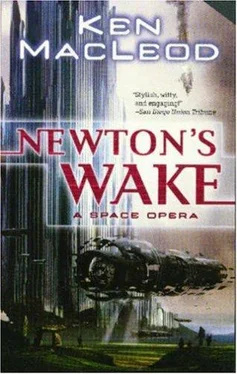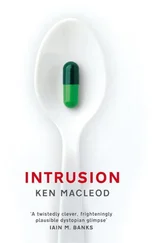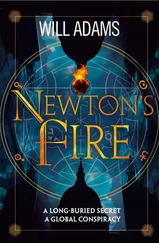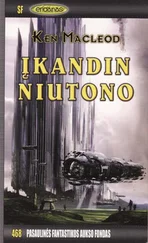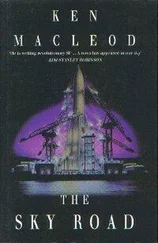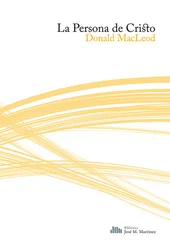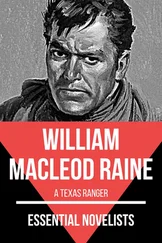Shlaim stood up. Winter could see he was shaken, but he was controlling it admirably.
‘I pity you,’ Shlaim said. He glared at Carlyle, and at Armand. ‘I know what you’re doing,’ he told Carlyle. ‘You’re trying to get the Returners on the side of the Carlyles, and against the Knights, in case the Knights arrive here first.’
‘Of course that’s what I’m doing,’ Carlyle said. Winter watched her give her former thrall a sad, lazy, contemptuous smile, and wondered that Shlaim was not himself enthralled. ‘What else would you expect me to do?’
‘Oh, I suppose,’ said Shlaim, ‘that you’d seduce Armand, or this sorry excuse for a singer, just to seal the alliance with spunk before you seal it with blood. It’s the Carlyle way, after all. I’ve seen you do it before. I’ve been in the room. The many .rooms.’
Armand turned to his wife, and to Carlyle. His hand was on the holster of his service pistol. ‘Shall I shoot him?’ he asked. It was like an offer to fetch another drink.
‘No, Jacques,’ said Jeanette. ‘They’d just resurrect him, anyway.’
‘I’ll bloody kill him,’ said Carlyle. She was shaking all over. ‘And when my family gets here, they’ll wipe every copy.’
‘No, dear,’ said Jeanette. She stood up. ‘Let’s just leave, together.’
Carlyle did not look again at Shlaim, or at Winter. Her face was pale with two red patches on the cheekbones, her mouth a horizontal line. She picked up her hat and her satchel and swept out with the Armands. Winter watched their departure and when he turned around Shlaim and his companions had gone. The rest of the tent still held about fifty people, some looking their way. Ben-Ami and his assistant and the actor sat frozen with embarrassment.
Calder stood and his girl rose with him, towering above.
‘Let’s repair to the bar,’ said Calder. ‘Goodnight, Andrea, Adrian, Benjamin. Thank you for an enjoyable and successful evening. Get off your arse, Winter.’
Winter got unsteadily to his feet. ‘Goodnight, chaps, lady. Goodnight.’
At the bar Calder hoicked himself onto a stool, draped his arm again around his girl, and leered at Winter. He snapped his fingers and raked drinks together like poker chips, dealt them out like cards.
‘Forget her, man,’ he said. ‘She’s out of your league. She’s a fucking princess, I know the type, know it of old.’ He shoved a shot glass across.
‘Knock this back to the memory of Irene and Arlene, false though the memories may be.’ They did. ‘And now, look around. There are at least ten women I can see from here who’re a damn sight prettier than Lucinda Carlyle, and every one of them looks ready right now to jump the bones of the ugliest bastard ever pulled from a peat bog and a back catalogue.’
For a moment Winter seriously considered clouting him. Then he looked around.
‘What the hell,’ he said.
Back in prehistory, before civilization, before Singularity, there had been no regeneration of lost limbs or organs. People had used cosmetics and prosthetics. When Lucinda had been a little girl, she had been horrified and disgusted to discover this. She had been even more appalled by a song from some sediment deeper than anything even folk-songs scraped, about a lover who had turned out to consist in part of just such artifices: a wooden leg, a glass eye, a wig, false teeth … .
Now, as she sat in the monorail shuttle facing the Armands and holding her knees together to stop their trembling, she felt the same horror. James Winter and Alan Calder were not uploads or downloads, or even resurrectees. They had prosthetic personalities . They had false memories . Without reliable memory there could be no identity, no continuity, no humanity.
The idea affected her like motion sickness. She had never thought of Shlaim as anything less than human when he had been her familiar. He was an indentured prisoner, a thrall as the Eurydiceans called it, and he was living in a virtual reality prison, but he was human, or posthuman, all the way through. His parts might have been digital, but he’d had them all.
This mingling of the human and the abhuman was a different matter. It was an abomination.
What made it all worse was that Winter had shown every sign of being besotted with her; and to make it worse yet, before Shlaim had intervened, she had been finding the tall musician quite attractive herself. She shuddered.
Jeanette Armand leaned forward. ‘Lucinda,’ she said, concerned, ‘I do believe you’re cold.’
Carlyle forced a smile back. ‘Aye,’ she said. ‘I am a bit.’
‘What are you doing?’ asked the Hungry Dragon .
It was like the voice from behind your shoulder of someone who has crept up on you. Cyrus Lamont started convulsively. He had been sure this part of the ship was one which was now outside the machine’s introspection.
‘Just checking the drive unit,’ he said. ‘It’s no longer showing up on the instruments.’
‘It is perfectly clear in my internals,’ said the ship. ‘Though I cannot be certain that these give an accurate picture. Had you not been too busy trying to rig up an EMP generator to wipe my mind, I might have appreciated your cooperation in making a detailed comparison.’
Its voice betrayed a note of mournful and (as it happened) entirely accurate accusation. Lamont pushed himself away from the unit, raised his hands and shook his head.
‘I wasn’t,’ he said. ‘And even if I was, which I wasn’t, you shouldn’t take it personally. You have plenty of off-site backups.’
‘Excuse me if I do not find that reassuring,’ said the Hungry Dragon .
‘However, let us leave that aside. I have something to show you. As I am unable to patch you an image, I suggest—’
‘Yes, yes.’
Lamont kicked off and propelled himself up the tube to the control room. He glided into the elastic mesh and settled, looking at the screens. Outside, the asteroid resembled—even more than it had the last time he’d checked—the carcass of some large animal being transformed by insect larvae, some of which were already pupating, if not indeed metamorphosing. For hectometre after hectometre it crawled with war machines in an entire bestiary of forms, from behemoth tank-like vehicles to zippy insec-tile aerial fighters, and with the machinery—itself continually cannibalised by subsequent stages in the production process—for making more of them. The monomolecular parasols of solar mirrors flowered all over the place, and steel and diamond edges and planes glinted in their reflected and focused light. Elsewhere long translucent pipes pulsed with some kind of chemical fuel synthesised from the asteroid’s carbon, hydrogen and oxygen.
‘Found something new in the zoo?’ Lamont asked.
‘Not that screen,’ said the ship. ‘This.’
It changed the picture over to the input from the ship’s subtlest piece of instrumentation, the gravity-wave detector. The display was a complex, ever-changing jumble, as uninterpretable to the naive eye as a radar screen to a savage. Lamont’s eye was not naive. He spotted the anomalies immediately. Four point traces were cutting a swathe across the system, converging on the Eurydice-Orpheus orbital couple. Each object was losing mass by the second, almost exponentially as they decelerated, yet the mass wasn’t being thrown off in any dispersed form. As he clocked their speed he realised what was going on—they were decelerating from near light-speed relativistic velocities. This entirely accounted for their decrease in mass. It seemed impossible, a naked violation of the Second Law of motion.
‘Any trace of their expelled reaction mass?’ he asked. ‘Retro-flare signatures?’
Читать дальше
